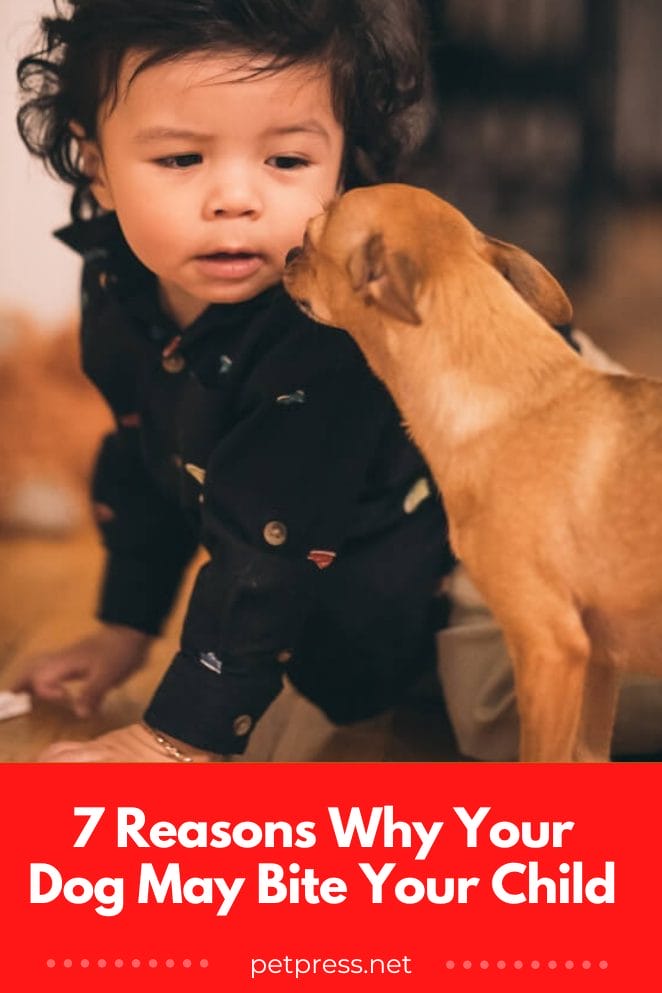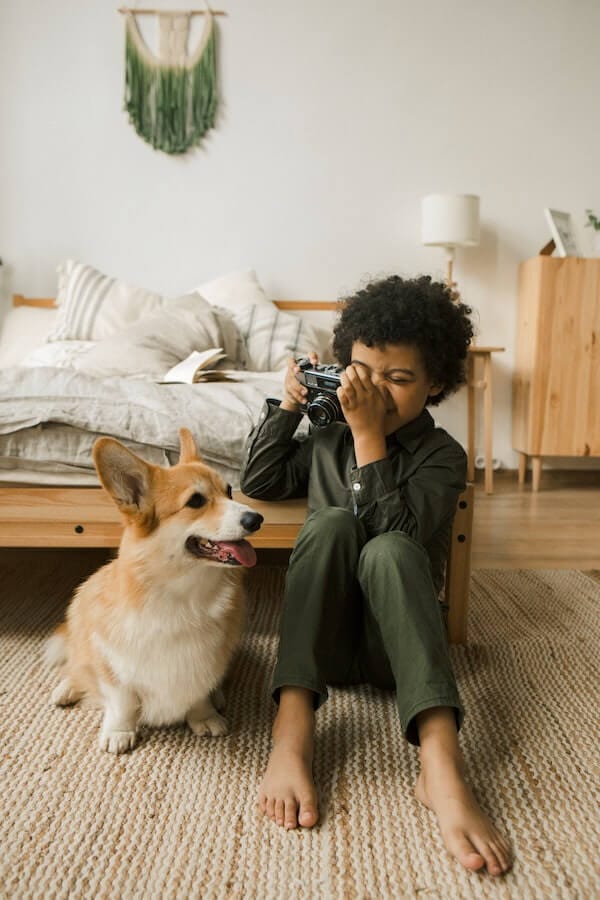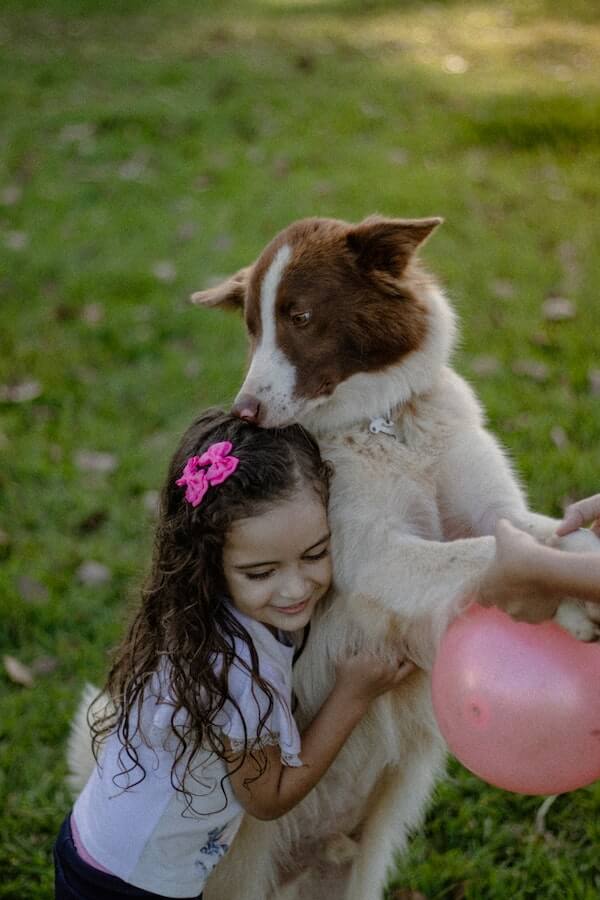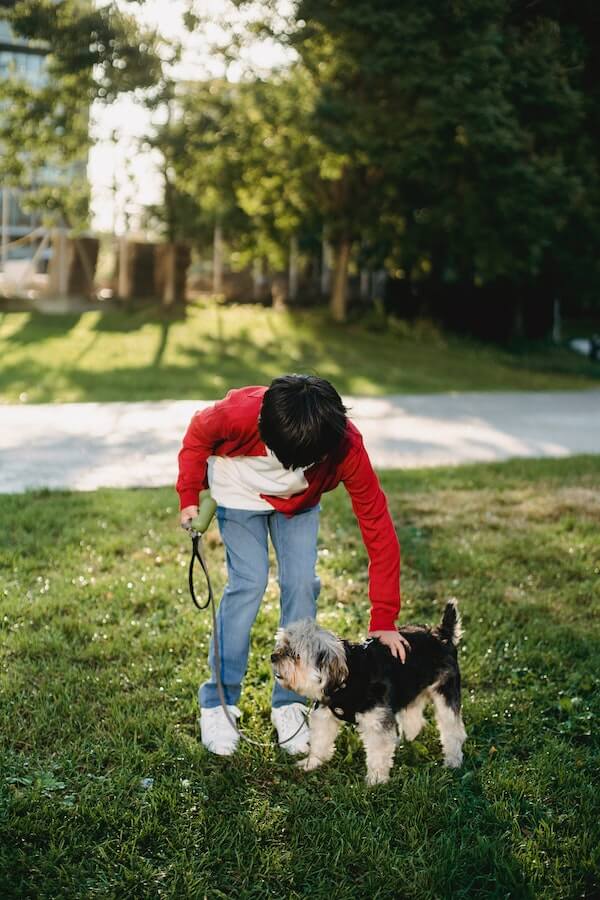
It’s an age-old dilemma of every parent: why does my dog bite my child? Dogs can be a loving and loyal companions, but when they attack your child, it’s understandably concerning.
But before you scold your pup—or worse, give them away—there are some things to consider when trying to understand why they may be biting.
This article will look at the reasons behind canine aggression towards humans and offer advice on how to handle the situation safely and effectively.
So let’s dive in and figure out why our furry friends sometimes don’t quite get along with their human counterparts!
Why do dogs bite kids?

Dogs and kids go together like peanut butter and jelly, except when the equation turns sour with a bite. Unfortunately, this happens more often than we’d like to think. But why do dogs bite kids? Here are 7 possible reasons:
1. Fear or Anxiety:
Dogs can become fearful of noisy children, especially if they have had bad experiences in the past.
If a child is loud or runs around quickly, it could startle your pup which can lead to an aggressive response as a form of protection. Parents must help kids understand that not all dogs want hugs and kisses!
2. Not Enough Early Socialization:
Puppies who don’t get enough socialization with people early on can be more likely to bite.
Dogs that haven’t had much interaction with people, or with children specifically, may not recognize them as friends and instead view them as a threat.
3. Not Being Trained Properly:
If a dog isn’t trained properly, it can lead to situations where the pup feels like biting is an appropriate response.
For example, if your dog perceives someone as trying to take its toy away, it might try to bite in order to protect itself and its belongings.
4. Frustration:
Dogs who have spent too long confined in one place or don’t get enough exercise are more likely to become emotionally frustrated and display aggressive behavior when they finally do interact with people.
5. Stress:
Just like people, dogs can suffer from stress which might lead to a bite. If your pup is overstimulated by too much noise or activity, it may lash out with aggressive behavior.
6. Not Feeling Well:
Dogs who aren’t feeling well are more likely to act defensively if they feel threatened.
If a child gets too close and startles them, the pup could respond with a bite as a way of protecting itself and its space.
7. Being Provoked:
Children don’t always understand that pulling tails and ears can be painful for the dog, and this behavior can easily provoke an aggressive response from your pup if you’re not paying attention!
Hopefully, this list of reasons emphasizes why it’s so important for parents to educate their children on how to properly interact with dogs and why it’s also essential that pet owners train their pups and monitor them around kids. That way, we can all make sure our furry friends and little ones stay safe!
How to stop your dog from biting your child?

It’s no secret that children and dogs don’t always get along. If your pup is a biter, it can put a serious damper on the relationship between your child and pet.
Don’t worry – there are plenty of ways to stop this behavior before it starts. Follow these five tips to help keep your dog from biting your kid!
1. Establish boundaries:
To make sure both parties feel safe and respected, set up clear boundaries between kids and dogs.
These may include not letting kids approach while the dog is eating or sleeping, teaching children not to pull on tails or ears, etc.
2. Teach basic commands:
Every dog should know basic commands like “sit” and “stay.” This will help your child feel more in control of the situation and make sure they are following the same rules as your pet.
You can also train your dog to be nice around children so that they do not bite them.
3. Give them chew toys:
When puppies put their teeth on something, it’s usually to explore or play. Provide plenty of chew toys so they have an acceptable outlet for this behavior.
4. Use positive reinforcement:
Don’t scold your pup when they don’t bite – reward them with a treat when they do! This reinforces good behavior and helps make sure biting isn’t a habit that sticks around for long.
5. Supervise playtime:
Kids can be unpredictable, and dogs don’t always know when they’re being too rough. Always supervise any playtime between children and dogs – you can set clear boundaries and prevent any unwanted biting.
By following these five tips, you can help keep your dog from biting your child. Remember that all dogs are different, though – if the problem persists, consult a professional for more advice!
With a little patience and understanding, it doesn’t have to be a permanent issue.
Conclusion

At the end of the day, why does your dog bite your child? While there could be many explanations, it may simply come down to one thing – the lack of understanding between child and animal.
It’s important for children to understand how to properly interact with animals and vice versa. With love, patience, and communication, you can create a bond that won’t involve any unwanted bites in the future.
- 7 Dog Breeds With Webbed Feet And Why Do They Have Them - July 19, 2023
- 10 Best Fish For Small Tanks That Make Perfect Pets - July 18, 2023
- How to Breed Guinea Pigs: A Detailed Guide - July 17, 2023


GIPHY App Key not set. Please check settings